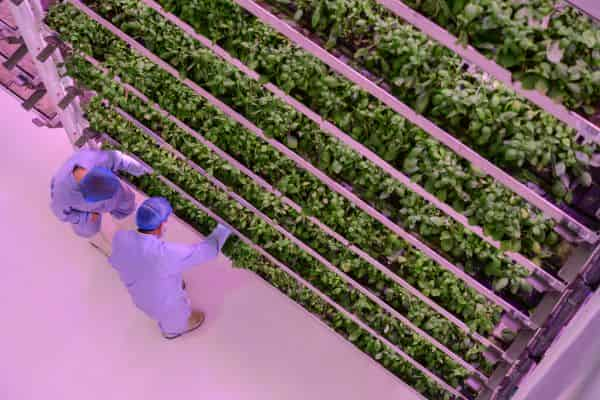In states like New York, weather conditions and short outdoor growing seasons have always been a hurdle to overcome. Enter controlled-environment agriculture (CEA). By 2032, the global vertical farming market is expected to exceed $35.3 billion.
“Urban farming has proven to be a beneficial tool in how we grow and enjoy our food, and because of our geographic location, it allows us to sustain farming year-round. Most notably, it’s a resource to neighborhoods battling food insecurity,” says Invest Buffalo Niagara President and CEO Tom Kucharski.
In January 2024, the Buffalo Go Green Zenner Street urban farm unveiled its new 40-foot shipping container that will be used to grow a year-round supply of vegetables and herbs. The vertical farming facility, located in Buffalo, New York’s east side, was a joint project of the New York Power Authority (NYPA), the Electric Power Research Institute (EPRI), NeuWater & Associates and the Buffalo Center for Health Equity. Each player involved in the project will have a hand in the operations, brought together by NYPA’s $300,000 investment. Data supplied by the project will be used by EPRI for nationwide research, NeuWater will manage food production and community distribution, while the Buffalo Center for Health Equity will conduct agricultural-based community programs at the farm.
“We’ve already seen an increase in these techniques, and we expect that to grow further,” says Kucharski.
This investment marks the second indoor vertical farm the NYPA helped launch in Buffalo. Four years ago, NYPA partnered with FeedMore to introduce a 40-foot hydroponic shipping container facility in the city. The results of this installation yielded tens of thousands of pounds of kale and other produce that were distributed among FeedMore’s Farm Market program and prepared meals program for seniors and disabled adults, in addition to supplying local food pantries.
“We had been investigating this solution as an augmentation to our growing and feeding efforts. As a result, we are on the radar of the hydroponic farm company,” says FeedMore WNY, Inc. President and CEO Tara Ellis. “Our research and groundwork was unfolding at the same time NYPA’s Environmental Justice program was searching for partners in this work.”
The FeedMore farms daily harvests include bok choy, basil, peppers and Boston bibb lettuce. Ellis says that the new East Side facility partnership will not only seek to replicate past local achievements, but to educate the community on the sustainability of indoor farming. Local participation and education associated with the development of indoor farming is a vital pillar in growing this sector, which allowed FeedMore the opportunity to establish an additional farm paid for by local funders in 2022.
“Indoor food production facilities provide a reliable solution to growing nutritious produce unaffected by weather conditions and provide some unique advantages in terms of reduced water usage, pest and disease management, reduced transportation emissions and rapid crop diversification,” says Ellis. “We are committed to continuing to develop a multi-source growing model.”
Future plans for FeedMore’s Buffalo campus include traditional in-ground growing hydroponic farms and a new deep winter greenhouse. Once operational, these assets will be used as a training module for its Readying Individuals for Success in Employment (RISE) workforce development program, cementing a pathway for the local community to play a role in future food sustainability.

